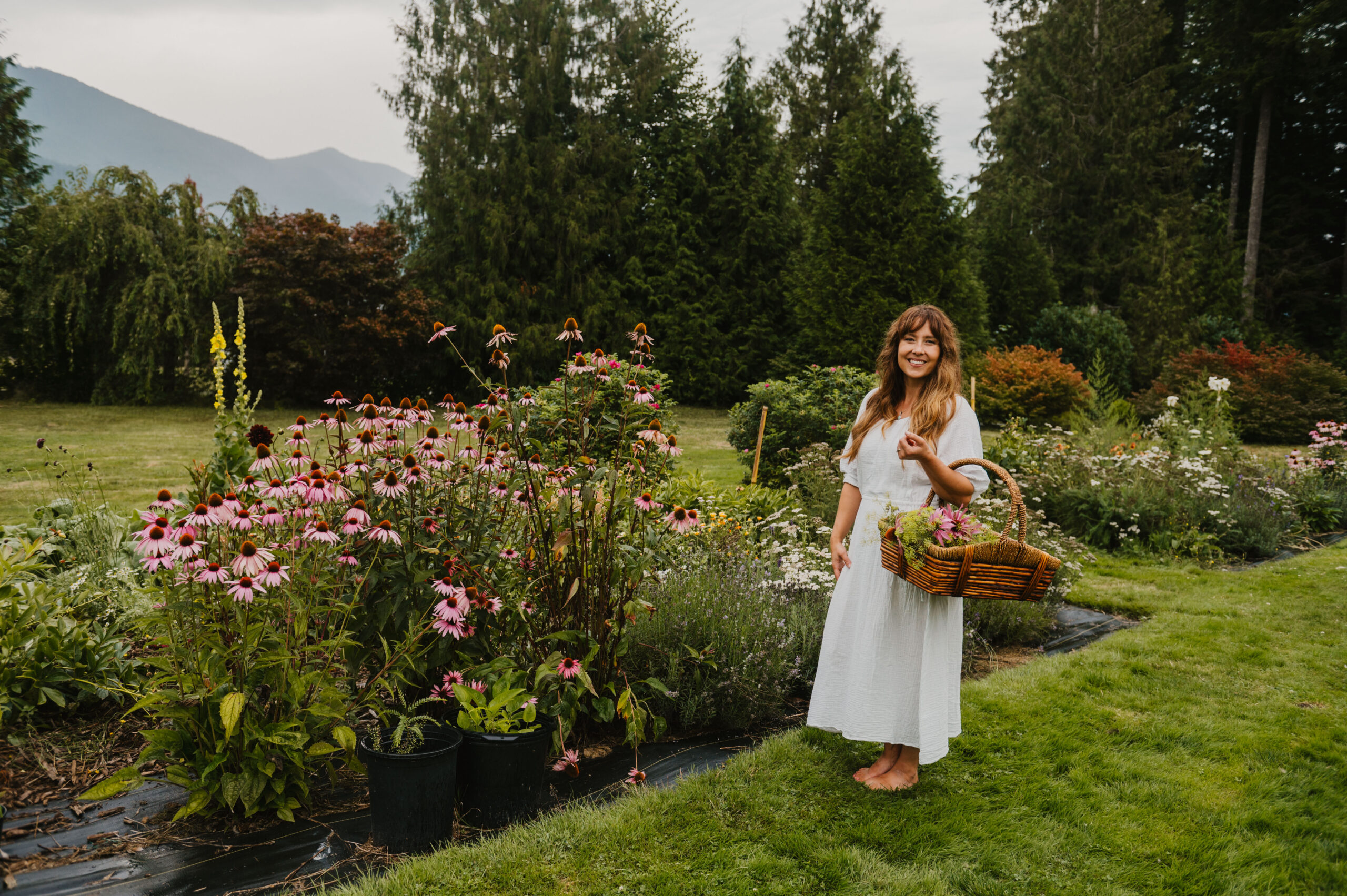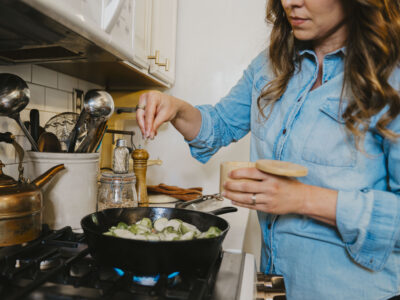Most of us will experience times of uncertainty. This uncertainty can turn into worry and/or anxiety if not properly processed. However, there are ways to control our emotions and let them work for us instead of against us.
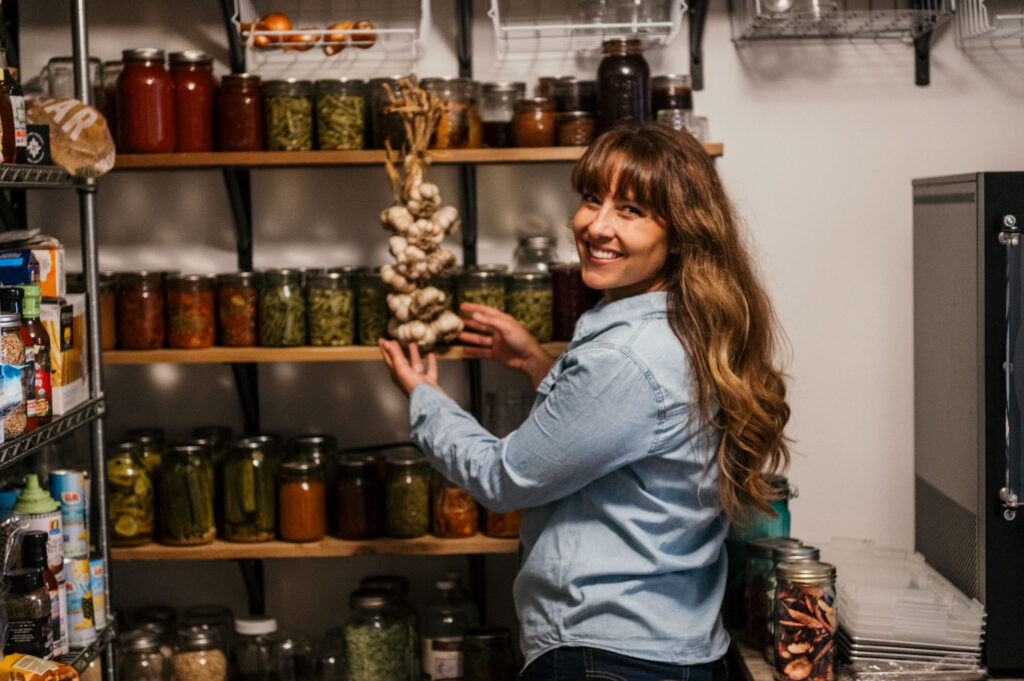
Join me with today’s podcast guest, Britnay Nelson for this episode of the Pioneering Today Podcast (episode #448) as we discuss how to turn worry into purpose.
Natural Remedies Made Simple

Start your home apothecary with confidence—even if you’re brand new. Learn how to choose the right herbs for your body using the simple principles of herbal energetics.
Discover how warming, cooling, drying, and moistening herbs affect your body—so you can stop guessing and start making remedies that actually work.
About Britnay
Britnay Nelson is a long-time member of the Pioneering Today Academy and has been homesteading in her suburban home since 2015. She’s become proficient at growing in containers, raised beds and small plots of land, along with spending time in the kitchen.
As a mom of an autistic son, she does a lot of research on how foods work as medicine and how they interact with people with special needs. She jokingly admits her homestead cleaning methods are best described as “there appears to have been a struggle.”
Her most recent endeavor has been going back to class to earn a degree in psychology.
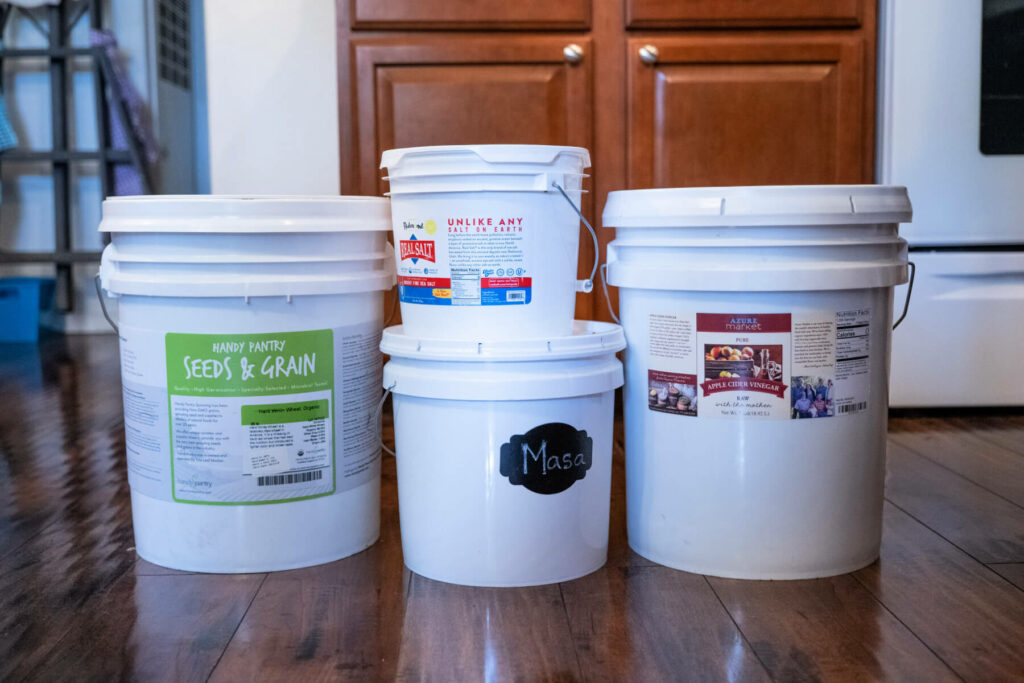
Prepping vs. Thriving
While most homesteaders don’t identify as “preppers,” it’s possible, based on the definition, that we really are!
A prepper is defined as making active preparations for disasters or emergencies likely to happen in the future.
The term “prepper” started to gain popularity in the 1950s and ’60s after the Cold War. It was a response to the threat of nuclear war. If you do some research, you’ll see that the media at that time created posters sharing photos of people wearing gas masks with instructions on how to build a bunker.
Because of this, it makes sense why people have this mindset of survival and protecting their families. Y2K was another instance of people leaning toward the prepper phase. The events of 9/11 were another one. Then again, in 2020, and the pandemic.
Britnay makes a great point that we’ve technically been preppers since the beginning of time. We prepare for changing seasons, putting up food, etc, but instead of being a prepper, it’s about thriving.
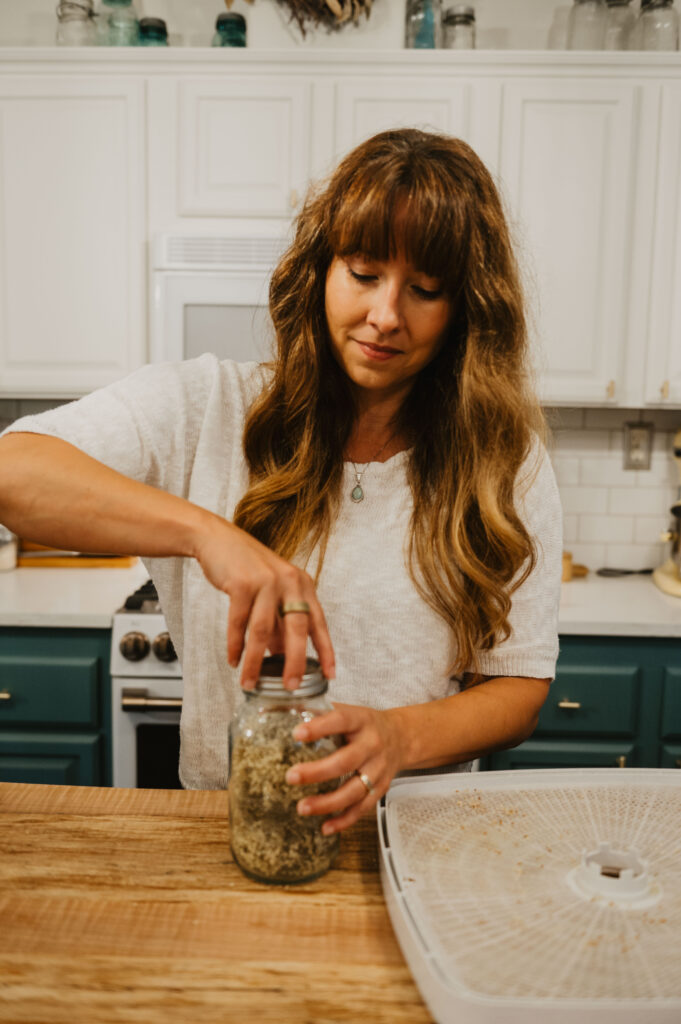
How Our Body Responds to Stress
When faced with a dangerous or anxiety-producing situation, there’s a process that starts in the brain called “Fight or Flight.”
The process starts in the amygdala, which sends a signal to the hypothalamus saying, “We’re in danger. You need to prepare the body to do something.”
The hypothalamus then sends stress hormones to the rest of the body, which kicks in the body’s automatic nervous system.
There are two parts to the automatic nervous system: sympathetic and parasympathetic.
- Sympathetic Nervous System – This is the part of our nervous system that will get us through a difficult situation. We’ll experience signs of stress, such as an elevated heart rate and adrenaline coursing through our body, and we’ll respond by fighting or fleeing.
- Parasympathetic Nervous System – After the stressful situation is over, your parasympathetic nervous system kicks in. You’ll be able to relax and take a deep breath, and your body’s systems will turn back on.

How Our Brain Processes Stress
After a stressful situation is over, our body doesn’t just forget about it and move on. Our brains will process it and assess what we need to do next time.
The next time a stressful situation rolls around, our Hippocampus will help us to remember that past experience and know how to handle the current situation.
There are times, especially after events when trauma occurs, when a person can build up a phobia of the event occurring again, and even though they’re in a safe space, they have a perceived threat and feel that they’re in danger.
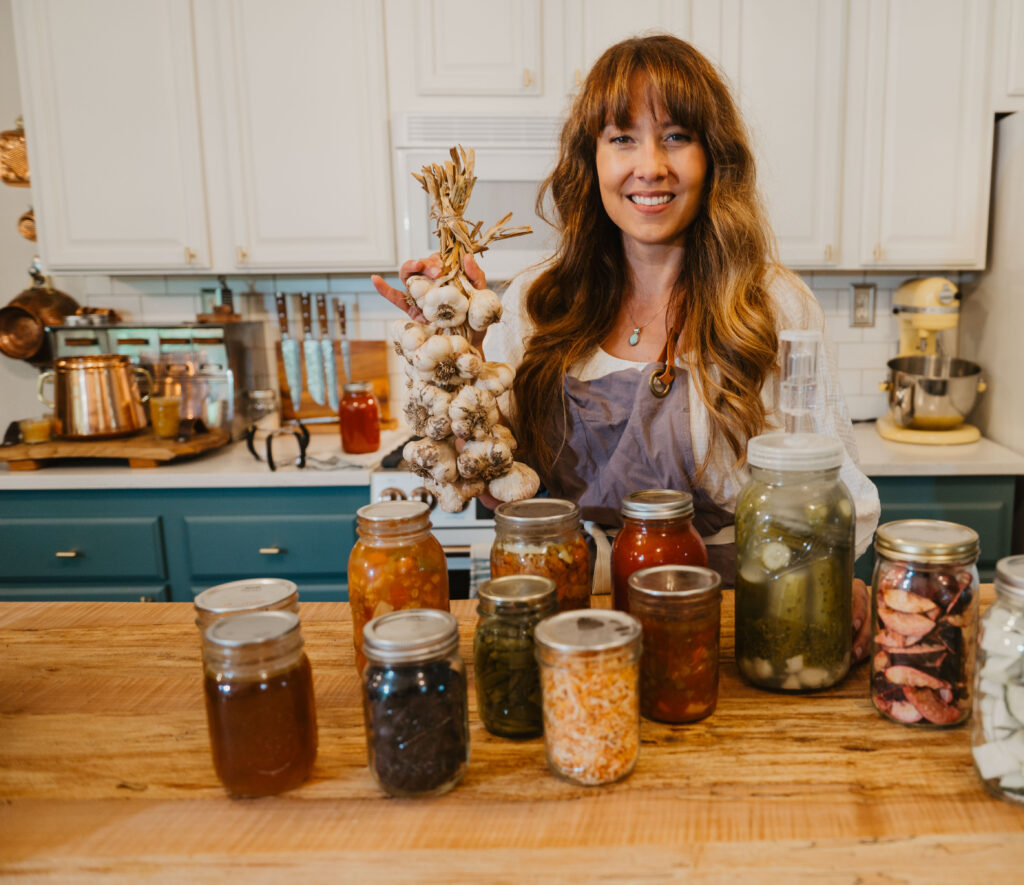
How Preparedness Affects Our Stress
Being prepared is actually meant to bring peace and comfort. Though it’s easy to see where you want to be, feeling like you’re so far from reaching your preparedness goals, it’s important to realize that any little bit of preparedness is a step in the right direction.
Preparedness won’t fix every possible event that occurs, but it can help reduce stress in the face of a hard situation.
Stress-Reducing Techniques
Breathe
The first thing Britnay tells people in the face of stress is to breathe. Though I haven’t done much research on the Box Method of breathing, I do know that it works wonders for me.
According to the Cleveland Clinic, the Box Breathing Method has many benefits:
“Box breathing is a form of yogic deep breathing employed by the United States Navy SEALs and by stressed-out people everywhere. It’s also known as sama vritti pranayama, born of the yogic practice of pranayama, or focusing on the breath.
Its common name, “box breathing,” refers to the fact that a box has four sides, a concept represented here by breathing while you slowly count to four for a total of four times — four counts of breathing in, four counts of holding your breath, four counts of exhaling and four more counts of holding after your exhale.”
This method of breathing is also sometimes called 4×4 breathing, 4-4-4-4 breathing, equal breathing, four-square breathing or square breathing.
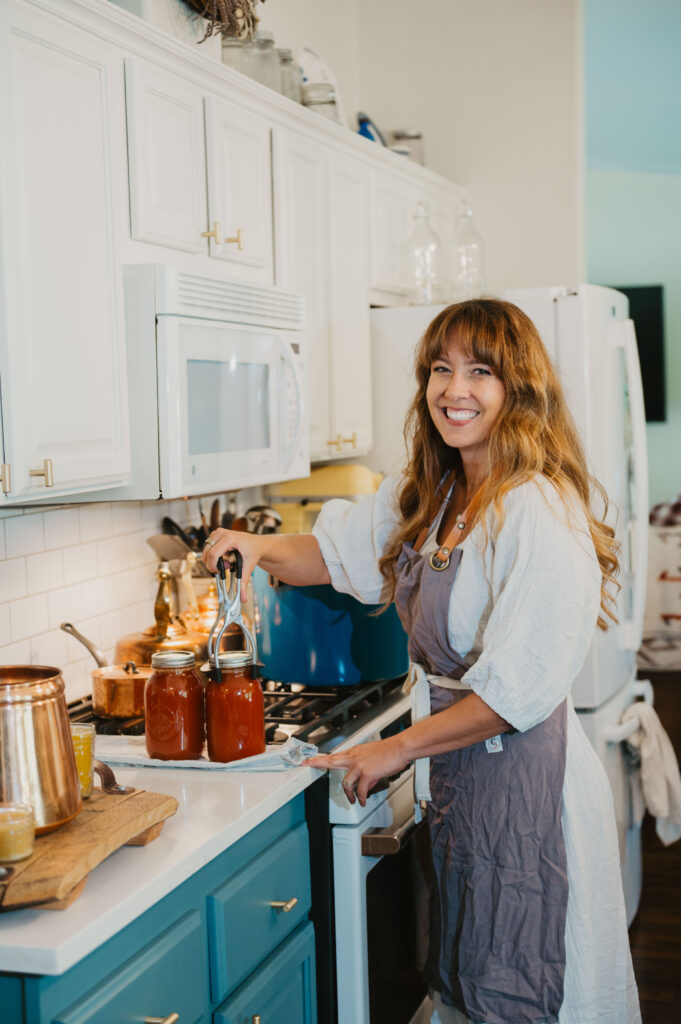
Y
Find a Hobby
Though this isn’t a quick fix for stress, something Britnay encourages people to do is to find a hobby. Something that engages the mind and makes them feel great.
When you’re learning something new and focusing on something that interests you, your brain isn’t focused on stress.
Gardening as a hobby actually has proven beneficial stress-reducing factors from the microbes in the soil. (Source)
As Britnay says, “You can only fail if you quit trying!”
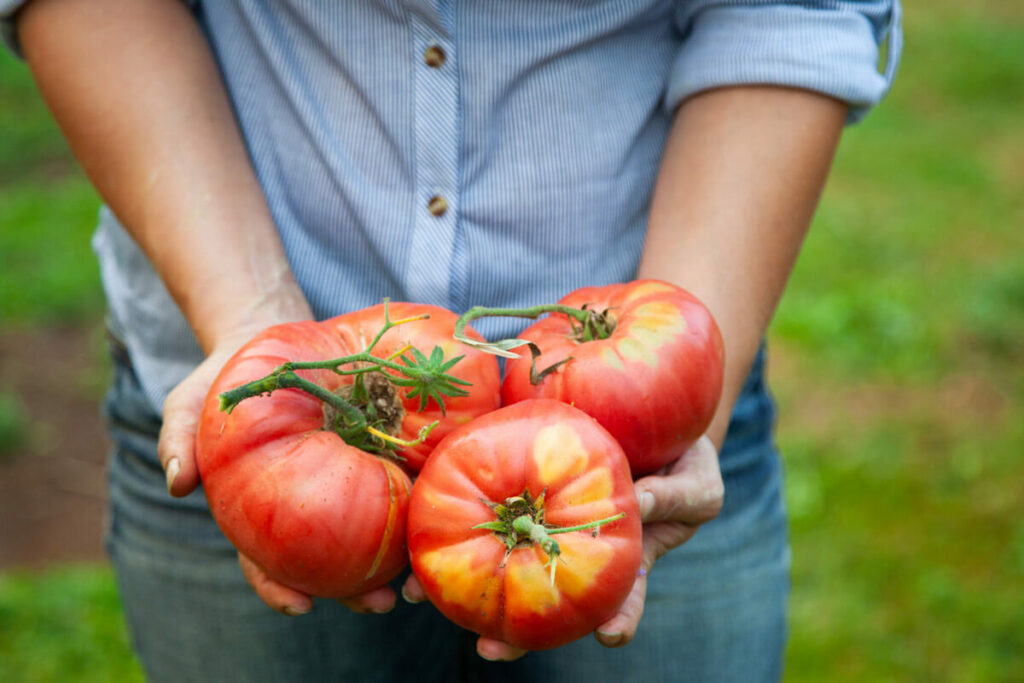
Pioneering Today Academy
If you want to connect with Britnay, you can join the Pioneering Today Academy and hang out with her and some of our other members there.
Remember that the goal is never self-sufficiency but community sufficiency when embarking on this homesteading journey. Finding other like-minded members is what can help make or break your success.
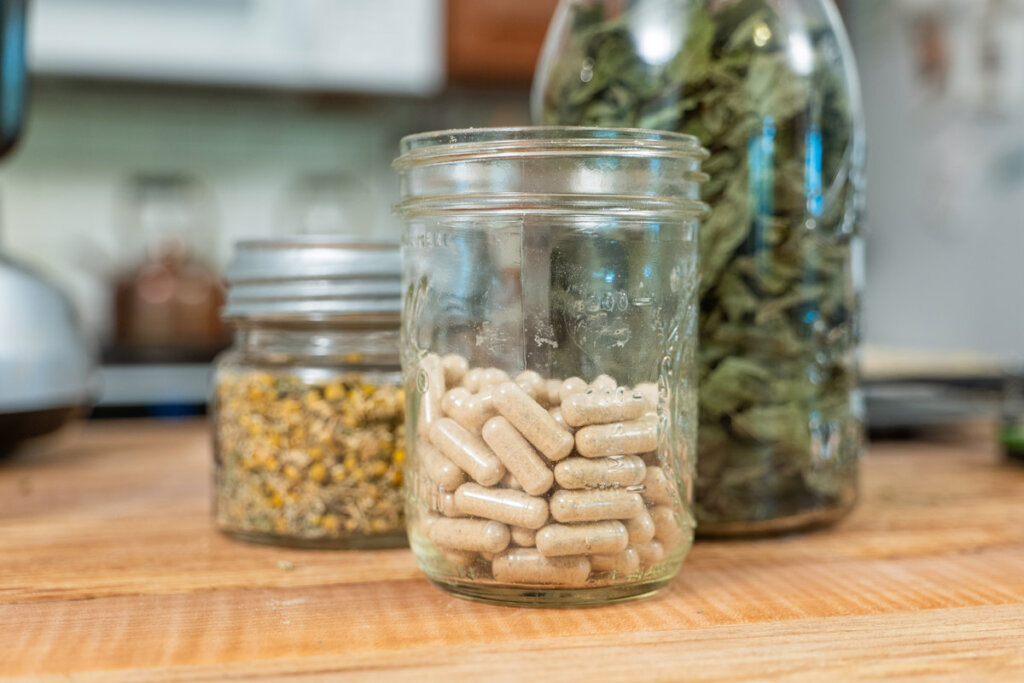
More Posts You May Enjoy
- DIY Herbal Stress-Relief Capsules
- Herbal Would Healing Salve
- How to Use Herbs and Natural Remedies at Home
- 5 Rules for Foraging for Wild Edibles
- Foraging for Wild Medicinal Herbs
- Alternative Medicine (& What to Do if Your Medicine Isn’t Available)
- Medicinal Herb Garden (Planning & Growing)
- Herbal Remedies for Animals (Pets & Livestock)
